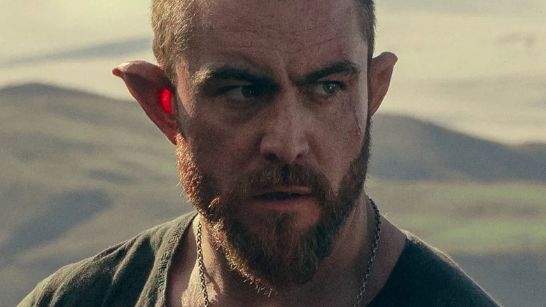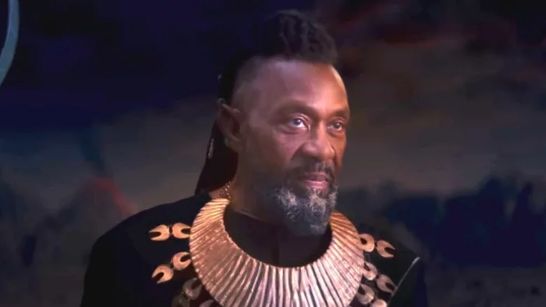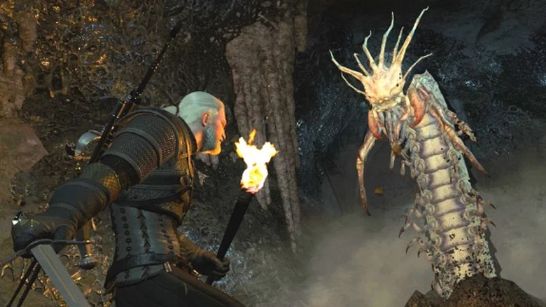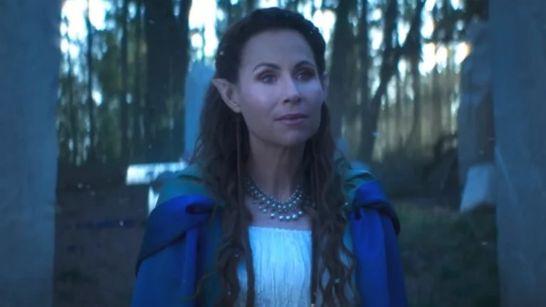The first “The Witcher” spin-off on Netflix aims to create a narrative that will appeal to readers, viewers, and gamers of the novels, series, and video games. Henry Cavill’s absence from the miniseries feels noticeably obvious, but this is due more to the location than to his departure from the main “Witcher” series. More than a thousand years before the events of “The Witcher’s” first two seasons, “The Witcher: Blood Origin” takes place during a catastrophic magical event known as the conjunction of the spheres, when the opening of numerous portals causes humans and monsters to arrive on a continent that was previously only home to dwarves and elves.
The world depicted in “Blood Origin” is one in which elf empires are created through alliances, betrayals, and war; the main dangers to elven dominance are bandit invasions and famine brought on by the ensuing chaos. Characters and spectators alike witness some of the first monsters to enter this dimension as the events progress. And while most creatures in the “Witcher” universe fall into rigid categories like insectoids, draconids, specters, and relics, some of the monsters in “Blood Origin” defy categorization altogether. The story’s sense of mystery and discovery is enhanced by the dearth of information we have about these creatures. Although their nature may appear mysterious, their functions in “Blood Origin” and perhaps next seasons of “The Witcher” are more than clear. The monsters from “The Witcher: Blood Origin” are listed here.
Balor’s Monster
The monster that Balor brought from another world is probably the most intriguing creature in the miniseries and is very challenging to categorize. It has insect-like legs and wings, can fly, is fashioned like a dragon, and blasts lightning from its three arrowhead-like tails that can transform people into mist. This power enables Balor to execute the king and the leaders of the majority of warrior clans almost immediately, opening the door for his allies to seize control of the empire. As a result, the three arrowhead-shaped tails become the empress and her warriors’ coat of arms, which they display on their armor. Their greatest flaw is revealed to be their overconfidence in their ability to control anything on the other side of the portals.
Eventually, Balor’s monster succumbs and is the first to be killed by a witcher. But after experiencing the strength of chaos magic, Balor decides to give up Fenrik, the sole person in his life, in order to gain a tremendous amount of power. But when he gets back to the palace, Syndril and Zacaré utilize their strength to reroute the energy onto the monolith, destroying it in the process, as a test of his new skills. Sadly, rather than resolving their issues, this results in the opening of several portals, a phenomenon known in the books as the conjunction of the spheres, which brings both people and monsters to the continent. The empress’s fantasies of conquering other planets and ultimately bringing down elf society come to a stop with this.
Fjall: The first witcher
Witcher creation is a difficult and agonizing process. Prospects undergo a series of chemical treatments that render them emotionally flat and infertile. On the bright side, they gain better sight, immunity to poisons and diseases, improved strength and agility, and the capacity to employ a minimal but usable level of magic as a result of the procedure. While some of these modifications might appear arbitrary, “Blood Origin” demonstrates how important certain of these characteristics are for the ideal monster slayer.
When they come across the empress’ castle but cannot enter it, Fjall resorts to a risky procedure in which he uses potions and spells to fuse his body with a dead monster. He almost loses his life during the excruciating procedure, but he also gains a tremendous amount of strength, ferocity, and a strong urge to hunt. After witnessing Éile being injured by Balor’s beast when he is eventually brought to the castle, he loses control. His skin turns gray and his muscle mass increases to gigantic proportions as a result, putting him in a type of berserker state. He utilizes this power to kill the creature, but after that, he loses control of his emotions and turns on his companions, forcing them to kill him.
The first witcher’s genesis in the literature is a little different. Witchers are the product of mutations obtained after several experimentation with monsters, according to Winteriscoming.net. These mutations might have the effect of lessening the witcher’s emotional ferocity, which is necessary to transform them from berserker beasts into self-aware monster slayers. A potential “Blood Origin” sequel could delve into this facet of the original work.
Pale Widow
The majority of the monsters in “The Witcher” are inspired by actual legend. For instance, the Doppler is a hybrid of an Irish and Finnish mythological beast. On the other side, the djinn originates from traditional Middle Eastern culture. However, some animals have a far more straightforward character. A huge centipede, which is referred to in the books, behaves very similarly to monsters like the Arachnomorph and the Endrega, which resemble elongated spiders and scorpions. Although drastically altered in appearance, the enormous centipede makes an appearance in Season 2 of “The Witcher” and appears as a common foe in “The Witcher III: Wild Hunt.”
The protagonists of “The Witcher: Blood Origin” run across their first monster as they open a portal to the city of Xin’Trea. They discover a new planet that isn’t all that different from their own, but for the presence of a lovely flower that attracts a huge white centipede, which then goes for them. By returning to their world and closing the portal while the beast is still passing, they are able to get away. The Pale Widow, which is included in “The Witcher III: Wild Hunt’s” bestiary, is possibly one of the few enemies in “Blood Origin” that can be quickly recognized. Despite being rather straightforward, it ultimately serves as a crucial tool for the heroes, enhancing their chances of success and permanently altering one of them.
Seanchai
Seanchai, who is portrayed by “Good Will Hunting” actor Minnie Driver, doesn’t provide many hints about her personality. After stopping the soldiers in their tracks, she immediately takes action to save Jaskier on the battlefield. Later, Seanchai appears from the shadows, like Jaskier, before changing into a hideous figure and then taking the guise of an elf to comfort the bard. She claims she’s not a Doppler or a shape-shifter, yet it’s obvious that she possesses skills extremely comparable to those. Seanchai also appears to have some degree of control over space and time, as Driver noted on Twitter. The actor sees her role as a story collector who finds long-forgotten tales and returns them to musicians so they can share them with people when they most need them.
If we don’t relate it to what happens in Season 2 of “The Witcher,” telling Jaskier the tale of how the spheres met and how the first witcher was born might not seem to have a clear point. Several monoliths are employed at this time to create gateways to other realms. This typically results in a number of monsters entering the continent and causing mayhem. Since the first conjunction of the spheres results in the emergence of witchers as well as the end of elf rule, their entrance is predicted to cause even more havoc in this planet. The many citizens of the continent may need to recall how this all began in the first place and learn that they should be positive despite the chaos since such dire times are waiting for them in the future. In that regard, Jaskier’s latest song might end up being their most effective tool.
Our Team DCS includes 5 different writers proficient in English and research based Content Writing. We allow them and encourage them to follow the Entertainment news all day long. Our posts, listicles and even the exclusives are a result of their hard work.















